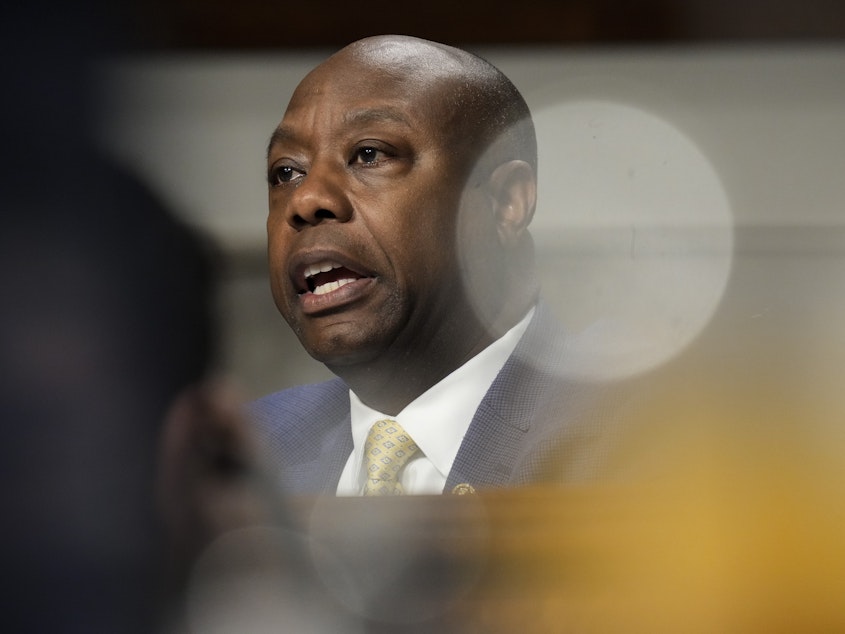Sen. Tim Scott files paperwork to run for president in the 2024 election

Ahead of a "major announcement" in his hometown of North Charleston, S.C., on Monday, Republican Sen. Tim Scott has quietly made his run for president official. In a filing with the Federal Election Commission Friday, Scott filed a Statement of Candidacy as a member of the Republican Party. The office sought? President.
This filing comes after months of speculation about Scott's political ambitions. He previously announced a presidential exploratory committee in April which allowed him to raise money without the strict scrutiny of the FEC. A little over a month later, he is now poised to make that exploratory committee a conventional campaign.
This filing and the upcoming announcement also come after Scott's "Faith in America" tour, where he traveled the country — particularly early voting states like Iowa and New Hampshire — sharing his vision for America, leaning heavily into cultural war issues including education.
At a Faith and Freedom event in Iowa, Scott compelled a crowd of conservative Christian voters in the style of an Southern preacher — a job he said his mother wanted him to have.
"If you believe we need a little more A-B-Cs and a little less C-R-T, let me hear you scream!" Scott said. "Hallelujah."
Sponsored
The comment about CRT, or Critical Race Theory, highlights the lane that Scott will take as a candidate. He is the only Black Republican in the U.S. Senate and has long espoused conservative views while talking frankly about race and his experiences as a Black man in America.
Scott will be the second South Carolina Republican to jump into the race; former Gov. Nikki Haley announced her candidacy in February. South Carolina is an early voting state for both Republicans and Democrats in 2024. [Copyright 2023 NPR]



